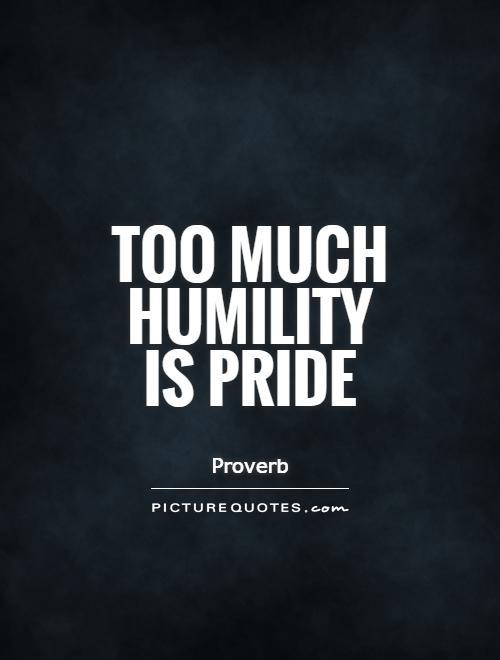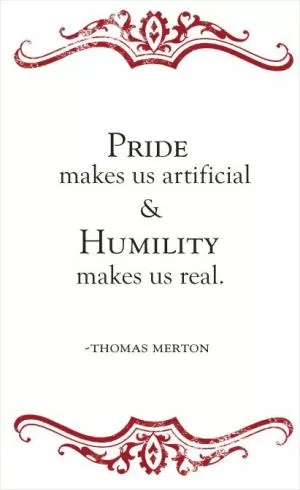Too much humility is pride

Too much humility is pride
The proverb "too much humility is pride" is a powerful reminder of the fine line between genuine humility and false modesty. While humility is generally seen as a positive trait, it can become a form of pride when taken to an extreme. This proverb serves as a caution against excessive self-deprecation and self-effacement, which can actually be a form of arrogance in disguise.True humility is characterized by a modest and unassuming attitude towards oneself and others. It involves acknowledging one's limitations and imperfections without seeking attention or praise. Humble individuals are able to accept criticism and learn from their mistakes, recognizing that they are not infallible. They are also able to celebrate the successes and strengths of others without feeling threatened or envious.
On the other hand, false humility is a form of pride that masquerades as modesty. It involves downplaying one's own abilities and achievements in order to appear humble and virtuous. However, this kind of humility is often driven by a desire for validation and approval from others. It can be a way of seeking attention and admiration under the guise of selflessness.
When humility becomes excessive, it can actually be a form of pride. This is because constantly putting oneself down and refusing to accept compliments or recognition can be a way of asserting superiority over others. It can also be a way of avoiding responsibility and accountability for one's actions, hiding behind a facade of humility instead of owning up to mistakes.
In this sense, too much humility can be a form of pride because it is ultimately self-centered. It is a way of drawing attention to oneself by constantly deflecting praise and admiration. True humility, on the other hand, is characterized by a genuine concern for others and a willingness to serve without seeking recognition or reward.












 Friendship Quotes
Friendship Quotes Love Quotes
Love Quotes Life Quotes
Life Quotes Funny Quotes
Funny Quotes Motivational Quotes
Motivational Quotes Inspirational Quotes
Inspirational Quotes